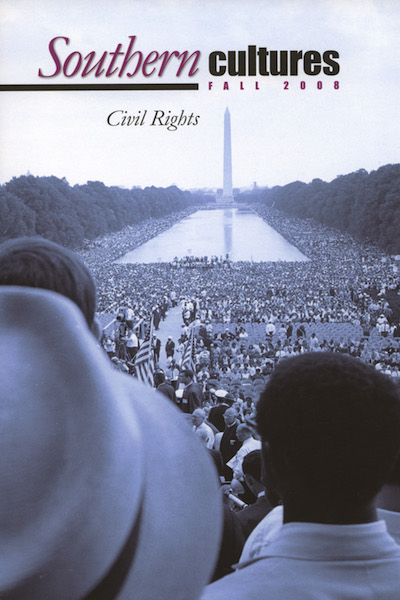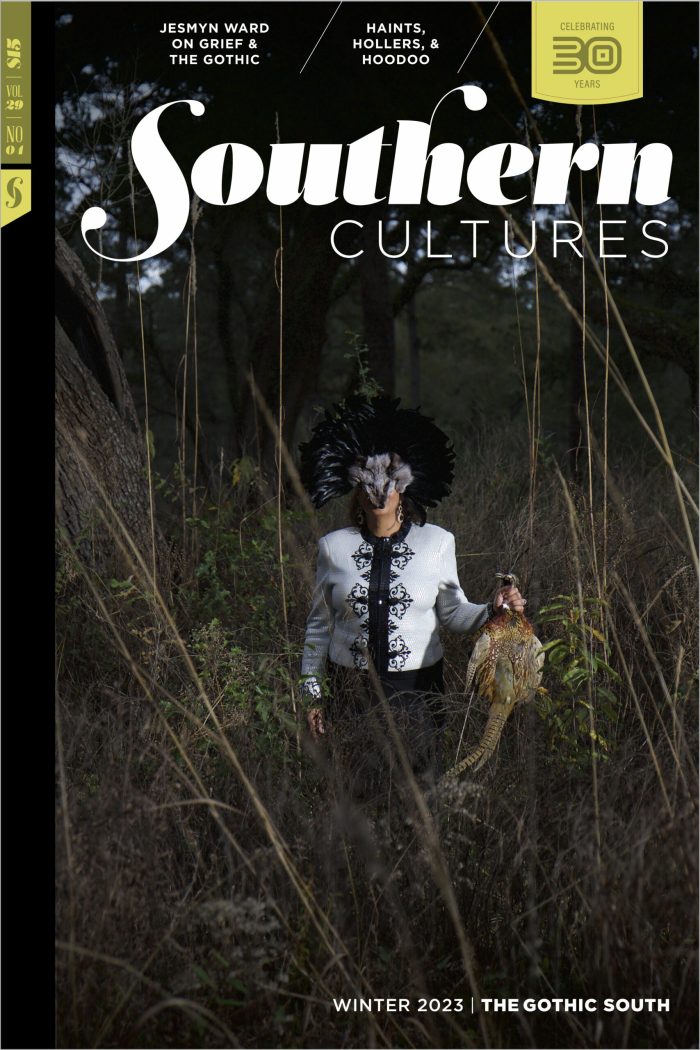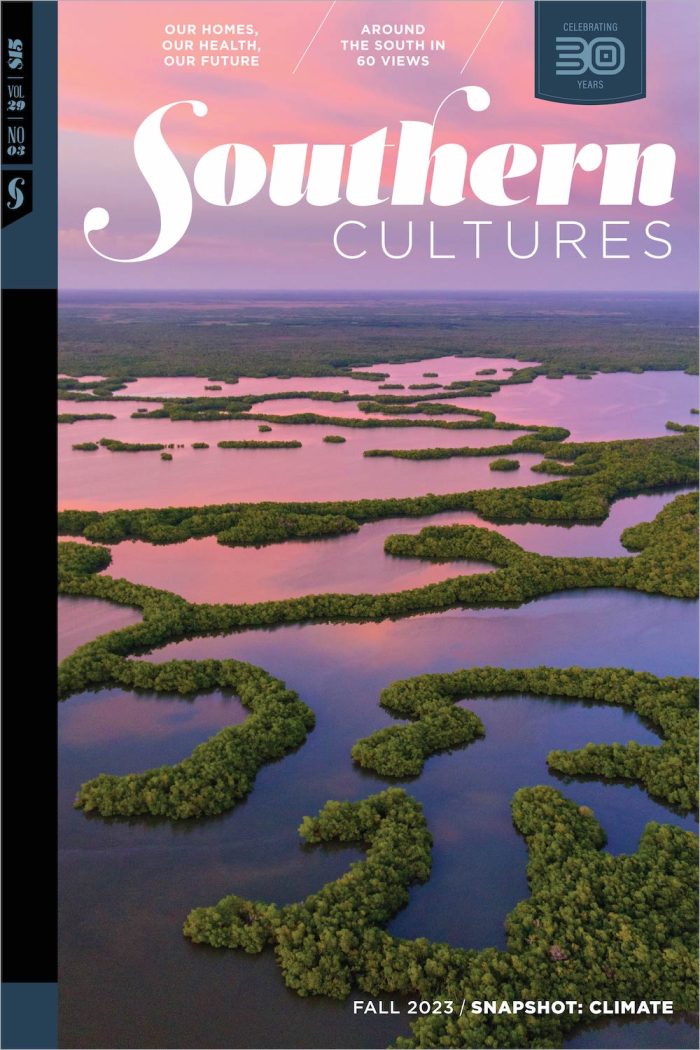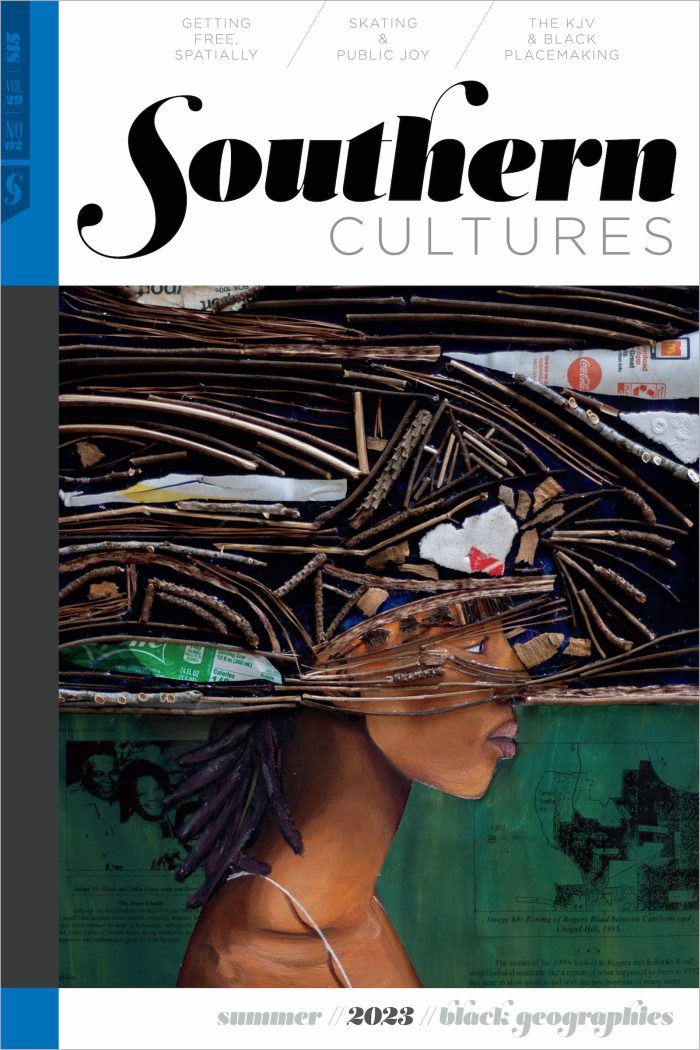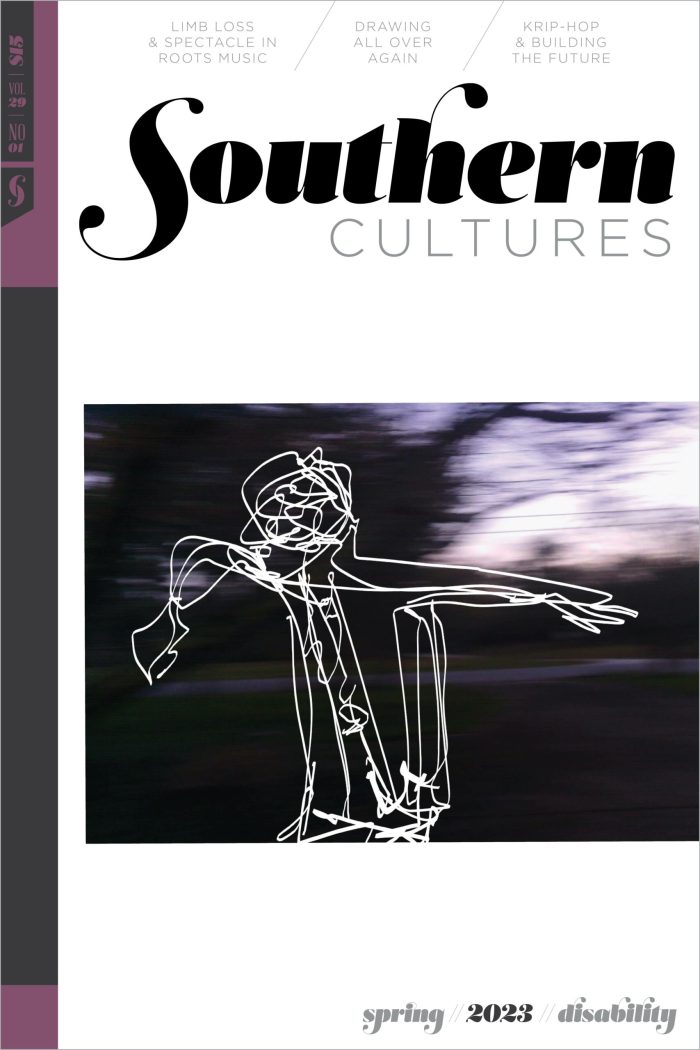BUY ACCESS
by Harry L. Watson
“Why do they call it ‘White Park?'” I demanded. “Why?” The Civil Rights Movement first touched my life about fifty years ago, though I scarcely knew it at the time. We were visiting my father’s sisters at the old home place in South Carolina, and were heading home from a lakeside picnic. I was old »
BUY ACCESS
by William R. Ferris
“I think in a lot of areas an almost mystic thing happened, given the backdrop. When I was a boy there was a pretty strict segregation, and it was so much the historic custom that really relatively few people even questioned it. Then came the 1960s and their challenges to the system.” Alex Haley’s legacy »
BUY ACCESS
by Stephen J. Whitfield
“The Carolina Israelite was a remarkable solo act, a bold effort to liberate its southern white readers from the inertia of tradition, defying the odds that anyone producing a one-man newspaper in the mid-twentieth century was very likely to be a crank.” The year 1960 was an auspicious one in southern history. Four black students »
BUY ACCESS
by Robert Hamburger
“‘When I came to, I was laying on the seat of a car and my sister was leaning over me. I thought she was crying. I could feel her warm tears spilling down on my face. But they weren’t tears. She was bleeding because someone had hit her upside the head. And the next day »
BUY ACCESS
by David Cunningham
“The drive for minimal justice on behalf of black people had come to this: the ordinary white people of the South . . .on the edge of a collective nervous breakdown composed in roughly equal parts of ignorance, rage, and paranoia.” On June 21, 2005, exactly forty-one years after the murder of Civil Rights workers »
BUY ACCESS
by Derek H. Alderman
“Martin Luther King Drives, Boulevards, and Avenues are important centers of African American identity, activity, and community—constituting what journalist Jonathan Tilove has called ‘Black America’s Main Street.'” Traditionally, public commemoration in the South has been devoted largely to remembering the region’s role in the Civil War and the mythic Old South plantation culture supposedly lost »
by Elizabeth Gritter
“They had me park my car behind this house. They told me the next morning that a posse had formed downstairs in the courthouse and was going to, I guess, lynch me or whatever.” Born on June 24, 1920, Hosea T. “H. T.” Lockard attended LeMoyne College in Memphis, Tennessee, from 1940 to 1942. In »
BUY ACCESS
by Peggy G. Hargis,
Larry J. Griffin
“Fannie Lou Hamer, one of the genuine heroes of the Civil Rights Movement, one said, ‘So this ain’t just Mississippi’s problem. It’s America’s problem.'” The Civil Rights Movement of the 1950s and 1960s transformed the United States. After decades of struggle and sacrifice, it prodded the federal government to ban racial discrimination in public facilities, »
BUY ACCESS
by Sarah C. Thuesen
“‘I took her to see the movie Norma Rae so that she could try to get some perspective on what kind of role she was playing. I think she appreciated seeing that and could see how the city would like to get rid of her because she had a whole lot more power than she »
